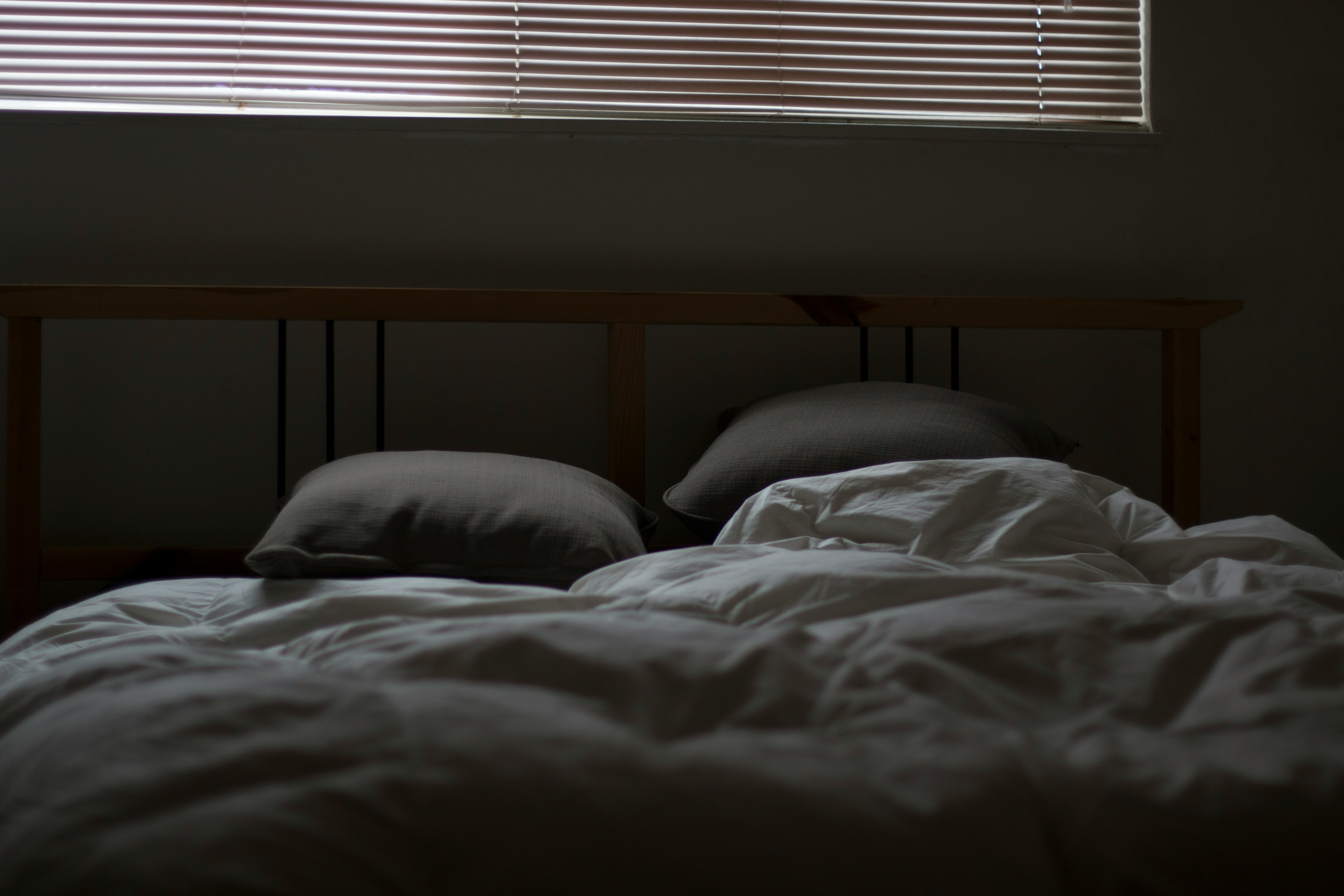The Science of Dreams: What Happens in Your Mind While You Sleep 💭🌙

Introduction
We’ve all had them—the weird, wacky, and sometimes downright bizarre dreams that seem to make no sense at all. One minute you’re flying, the next you’re back in high school taking a test you didn’t study for (yikes!). But while these dreams may seem like random nonsense, there’s actually a whole lot of fascinating science behind what happens in our brains while we sleep.
In this post, we’re diving into the wild world of dreams, exploring why we dream, what our dreams mean (or don’t mean), and how they’re linked to our sleep cycles. Get comfy—this journey into the subconscious is going to be a wild ride!
1. What Are Dreams? The Basics of Sleep and the Brain
Before we start deciphering our strange nighttime adventures, let’s take a look at what dreams actually are. Dreams occur during a phase of sleep called REM (Rapid Eye Movement) sleep. This is when your brain is most active, and it’s the stage where most of your vivid dreams happen.
🧠 REM Sleep: The Dream Factory
REM sleep is essential for both physical and mental restoration, but it’s also where your brain gets creative. During this phase, your brain processes emotions, consolidates memories, and does a whole lot of “mental housekeeping.” This is when dreams really come to life.
The science : During REM sleep, your brain activity is almost as high as when you’re awake. It’s believed that dreams are a result of the brain trying to make sense of all the information we’ve accumulated throughout the day. Essentially, your brain is taking your memories, emotions, and experiences and mixing them together to create these surreal storylines.
2. Why Do We Dream? Theories of Dreaming
For centuries, people have been curious about why we dream. Is it just random brain activity? Or do our dreams serve a deeper purpose? There are several theories about why we dream, each with its own take on what our subconscious is up to while we sleep.
💡 The Freudian Theory: Dreams as Wish Fulfillment
Sigmund Freud, the father of psychoanalysis, believed that dreams are a form of wish fulfillment. According to Freud, dreams allow us to express desires, thoughts, and emotions that we may repress during our waking hours. In other words, if you dream about winning the lottery or going on a wild adventure, it’s your brain’s way of fulfilling unspoken desires.
The science : While Freud’s theory is fascinating, modern research has cast doubt on the idea that dreams are always linked to repressed desires. Still, it’s fun to think that your brain might be plotting out a way to help you escape reality for a while!
🌌 The Activation-Synthesis Hypothesis: Dreams as Random Brain Activity
On the flip side, some researchers, like J. Allan Hobson and Robert McCarley, proposed that dreams are simply the brain’s attempt to make sense of random electrical activity occurring while you sleep. According to this theory, your brain is firing off neurons in various areas, and the brain “weaves” these random signals into a story, giving them meaning where there may be none.
The science : This theory suggests that dreams are not as purposeful as Freud thought. Instead, they’re just the brain’s way of trying to organize and make sense of all the electrical impulses happening during sleep. So, that dream where you’re riding a dinosaur in space while eating pizza? It’s just your brain getting creative with random signals.
🧘♀️ The Memory Consolidation Theory: Dreams Help Us Process Emotions and Memories
Another popular theory is that dreams help us process our emotions and memories. Throughout the day, we experience a ton of sensory input, and when we sleep, our brain sorts through these experiences, deciding what to keep and what to discard. Dreams are thought to play a role in this memory consolidation process.
The science : Studies suggest that REM sleep and dreams are important for emotional regulation and memory consolidation. Dreams may be your brain’s way of working through unresolved emotions or processing stressful events from the day. So, if you dream about a stressful work situation, it might be your brain’s way of helping you deal with it.
3. What Do Dreams Mean? Decoding the Subconscious
Alright, so we know what dreams are and why we might have them. But what do they mean? Are our dreams just random collections of thoughts, or do they have deeper significance? Some people swear by dream interpretation, while others think it’s all just superstition. Let’s take a look at some common dream symbols and their potential meanings.
🦋 Common Dream Symbols and What They Might Represent
Flying : A common dream where you soar through the sky like a superhero. Flying often symbolizes freedom, escape, or a desire to break free from constraints in your life.
Teeth Falling Out : If you’ve ever had this dream, you know it’s unsettling. This dream might indicate feelings of insecurity, fear of aging, or concerns about how others perceive you.
Being Chased : If you’re running away from something (or someone) in your dream, it could represent avoidance—perhaps you’re trying to escape from a problem or responsibility in your waking life.
Falling : Falling dreams are surprisingly common and may reflect feelings of loss of control, insecurity, or fear of failure.
The science : While some researchers believe that dreams can reveal hidden emotions or subconscious fears, others argue that dream symbols are not universal. What a flying dream means for one person might be completely different for someone else. In short, there’s no one-size-fits-all interpretation of dreams.
4. How Dreams Impact Our Mental Health
Dreams are more than just quirky mental snapshots—they can also affect our mood and mental health. Have you ever woken up from a vivid nightmare feeling stressed or unsettled? Or, on the flip side, woken up from a pleasant dream feeling rejuvenated? That’s because dreams can influence your emotional well-being in significant ways.
🌙 Nightmares and Stress
Nightmares, those bad dreams that leave you waking up in a cold sweat, can actually be linked to stress, anxiety, and even trauma. If you’re going through a difficult time or dealing with unresolved emotions, your dreams might reflect those fears or anxieties.
The science : Research suggests that people who experience frequent nightmares may have higher levels of stress or anxiety in their waking life. Addressing the underlying stressors can sometimes reduce the frequency of nightmares.
😴 Dreaming for Better Mental Health
On the other hand, pleasant dreams can promote relaxation and emotional well-being. If you’re dreaming about happy, comforting scenarios, it may help reduce feelings of anxiety and promote positive emotional states when you wake up.
The science : Studies suggest that having positive dreams can enhance mood and help with stress management, while nightmares may lead to heightened anxiety and even contribute to conditions like PTSD. So, the quality of your dreams may have an impact on how you feel during the day.
5. Tips for Improving Your Sleep and Dream Quality
If you want to improve your dream experiences and overall sleep quality, here are some tips to ensure you get the best rest possible:
🕒 Stick to a Regular Sleep Schedule
Going to bed and waking up at the same time every day helps regulate your sleep cycle, which can improve the quality of your dreams. Consistency is key!
🌙 Create a Relaxing Sleep Environment
Make sure your bedroom is a calm, quiet, and comfortable space. Minimize distractions (like bright lights or noise), and make your bed a cozy haven for sleep.
🧘♀️ Relax Before Bed
Taking time to unwind with relaxation techniques like deep breathing, meditation, or stretching can help calm your mind and improve the quality of your dreams.
🍃 Manage Stress and Anxiety
If you’re feeling stressed or anxious, try incorporating stress-reducing activities into your daily routine, such as exercise, journaling, or talking to a therapist. Reducing stress can lead to more pleasant and restful dreams.
6. Conclusion: Dreams as a Window into the Mind
So, there you have it! Dreams may be strange, quirky, and sometimes downright bizarre, but they play an important role in our sleep and mental health. While the exact reasons we dream are still up for debate, one thing is clear—dreams provide a fascinating window into the workings of our subconscious mind.
Whether they’re helping us process emotions, solve problems, or simply giving us a break from reality, dreams are an essential part of our sleep experience. So, the next time you wake up from a wild dream, take a moment to appreciate the complex and mysterious workings of your brain while you sleep.
“Dreams are the royal road to the unconscious.” — Sigmund Freud




